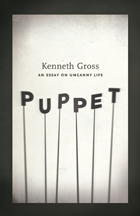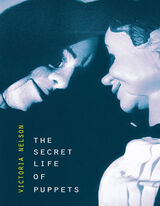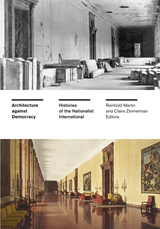
The puppet creates delight and fear. It may evoke the innocent play of childhood, or become a tool of ritual magic, able to negotiate with ghosts and gods. Puppets can be creepy things, secretive, inanimate while also full of spirit, alive with gesture and voice. In this eloquent book, Kenneth Gross contemplates the fascination of these unsettling objects—objects that are also actors and images of life.
The poetry of the puppet is central here, whether in its blunt grotesquery or symbolic simplicity, and always in its talent for metamorphosis. On a meditative journey to seek the idiosyncratic shapes of puppets on stage, Gross looks at the anarchic Punch and Judy show, the sacred shadow theater of Bali, and experimental theaters in Europe and the United States, where puppets enact everything from Baroque opera and Shakespearean tragedy to Beckettian farce. Throughout, he interweaves accounts of the myriad faces of the puppet in literature—Collodi’s cruel, wooden Pinocchio, puppetlike characters in Kafka and Dickens, Rilke’s puppet-angels, the dark puppeteering of Philip Roth’s Micky Sabbath—as well as in the work of artists Joseph Cornell and Paul Klee. The puppet emerges here as a hungry creature, seducer and destroyer, demon and clown. It is a test of our experience of things, of the human and inhuman. A book about reseeing what we know, or what we think we know, Puppet evokes the startling power of puppets as mirrors of the uncanny in life and art.

In one of those rare books that allows us to see the world not as we’ve never seen it before, but as we see it daily without knowing, Victoria Nelson illuminates the deep but hidden attraction the supernatural still holds for a secular mainstream culture that forced the transcendental underground and firmly displaced wonder and awe with the forces of reason, materialism, and science.
In a backward look at an era now drawing to a close, The Secret Life of Puppets describes a curious reversal in the roles of art and religion: where art and literature once took their content from religion, we came increasingly to seek religion, covertly, through art and entertainment. In a tour of Western culture that is at once exhilarating and alarming, Nelson shows us the distorted forms in which the spiritual resurfaced in high art but also, strikingly, in the mass culture of puppets, horror-fantasy literature, and cyborgs: from the works of Kleist, Poe, Musil, and Lovecraft to Philip K. Dick and virtual reality simulations. At the end of the millennium, discarding a convention of the demonized grotesque that endured three hundred years, a Demiurgic consciousness shaped in Late Antiquity is emerging anew to re-divinize the human as artists like Lars von Trier and Will Self reinvent Expressionism in forms familiar to our pre-Reformation ancestors. Here as never before, we see how pervasively but unwittingly, consuming art forms of the fantastic, we allow ourselves to believe.
READERS
Browse our collection.
PUBLISHERS
See BiblioVault's publisher services.
STUDENT SERVICES
Files for college accessibility offices.
UChicago Accessibility Resources
home | accessibility | search | about | contact us
BiblioVault ® 2001 - 2024
The University of Chicago Press









